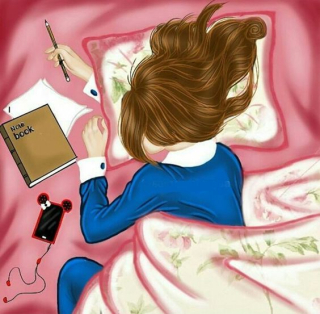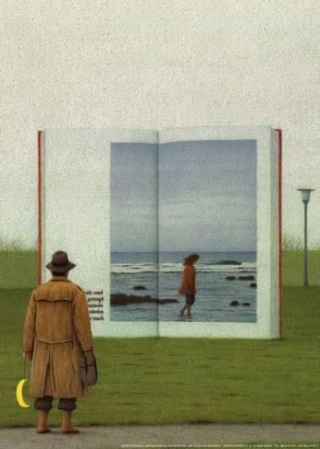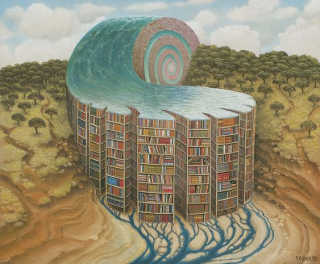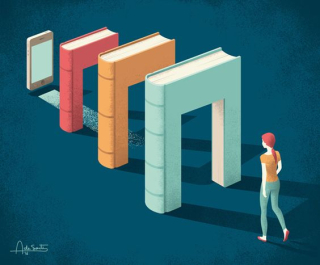Rob Bignell's Blog, page 151
February 4, 2020
A professional writer is an amateur who didn't quit. - Richard Bach
Professional Book Editor: Having your novel, short story or nonfiction manuscript proofread or edited before submitting it can prove invaluable. In an economic climate where you face heavy competition, your writing needs a second eye to give you the edge. I can provide that second eye.
February 3, 2020
Should you set aside a regular time to write?
More importantly  than setting aside a space to write, writers must set set aside time to write. The only way to become a published author, after all, is to produce a manuscript that can be published. If you instead wait for inspiration to strike, it may come so rarely that years could be spent penning just a draft of a novel.
than setting aside a space to write, writers must set set aside time to write. The only way to become a published author, after all, is to produce a manuscript that can be published. If you instead wait for inspiration to strike, it may come so rarely that years could be spent penning just a draft of a novel.
To write every day requires self-discipline. While ���forcing��� yourself to do so initially may be difficult, eventually you build up writing momentum; that is, you train your brain to be creative and frequently will end the session even knowing what you want to write the next day.
There are several ways you can build momentum during those first difficult days:
��� Come to your writing session knowing what you will write ��� All too often novice writers head to a coffeeshop or library to write but once there have no idea what they will write about. Always come to a writing session at least knowing what scene in your story you will write.
��� Change your location ��� Sometimes the space you write in negatively affects the time you spend writing. There may be too much noise, too many interruptions from family and friends, or too many distractions. If you���re not productive in an environment, change it until you find one where words are able to flow.
��� Write with a partner ��� I don���t mean co-author a book but sit at the same table with another person who also wants to write. The presence of another writer polices your bad habit of procrastination and actually helps you focus. Sometimes you can find writers willing to do such such sprints on Twitter or other social media.
Be realistic about how much time you set aside to write. If you block out several hours a day to write, you probably will find that for much of the day you have no creative steam and achieve nothing.
Finally, some caveats:
��� Be flexible ��� Often you can���t write the same time every day because of work obligations, travel, family responsibilities, and other hindrances to a set schedule. On such days, write earlier or later than usual, so if you always write between 5 and 6 a.m. but can���t one day, then do so for an hour later in the afternoon or evening when you can.
��� Not every writing session will be successful ��� Some days the words you write will need a major revision, some days they will be almost perfect just as you wrote them. Don���t let the ���bad��� writing days bother you. At least you wrote, and rest assured because of it you are improving as a writer.
��� Take a break ��� Sometimes you need to recharge your batteries, so every seventh day, don���t write. You might set aside that hour to read writing tips or to revise your manuscript.
Professional Book Editor: Having your novel, short story or nonfiction manuscript proofread or edited before submitting it can prove invaluable. In an economic climate where you face heavy competition, your writing needs a second eye to give you the edge. I can provide that second eye.
February 2, 2020
A novel is like a dream in which everyone is you. They're all parts of yourself. - Janet Fitch
Professional Book Editor: Having your novel, short story or nonfiction manuscript proofread or edited before submitting it can prove invaluable. In an economic climate where you face heavy competition, your writing needs a second eye to give you the edge. I can provide that second eye.
February 1, 2020
A man's bookcase will tell you everything you'll ever need to know about him. - Walter Mosley
Professional Book Editor: Having your novel, short story or nonfiction manuscript proofread or edited before submitting it can prove invaluable. In an economic climate where you face heavy competition, your writing needs a second eye to give you the edge. I can provide that second eye.
January 31, 2020
Don't use no double negatives. - William Safire
Professional Book Editor: Having your novel, short story or nonfiction manuscript proofread or edited before submitting it can prove invaluable. In an economic climate where you face heavy competition, your writing needs a second eye to give you the edge. I can provide that second eye.
January 30, 2020
Do not be surprised when those who ignore the rules of grammar also ignore the law. After all, the law is just so much grammar. - Robert Brault
Professional Book Editor: Having your novel, short story or nonfiction manuscript proofread or edited before submitting it can prove invaluable. In an economic climate where you face heavy competition, your writing needs a second eye to give you the edge. I can provide that second eye.
January 29, 2020
Books let us into their souls and lay open to us the secrets of our own. - William Hazlitt
Professional Book Editor: Having your novel, short story or nonfiction manuscript proofread or edited before submitting it can prove invaluable. In an economic climate where you face heavy competition, your writing needs a second eye to give you the edge. I can provide that second eye.
January 28, 2020
Crippled and crazy, we hobble toward the finish line, pen in hand. - Siri Hustvedt
Professional Book Editor: Having your novel, short story or nonfiction manuscript proofread or edited before submitting it can prove invaluable. In an economic climate where you face heavy competition, your writing needs a second eye to give you the edge. I can provide that second eye.
January 27, 2020
My Writing Process for Fiction and Nonfiction
As the  author of more than 30 books, several of which have topped Amazon.com���s bestseller���s list for their genre, writers often ask me how I write them ��� that is, what process do I follow... if I even use a process.
author of more than 30 books, several of which have topped Amazon.com���s bestseller���s list for their genre, writers often ask me how I write them ��� that is, what process do I follow... if I even use a process.
I definitely follow several steps when working on a book.
Writing process
The first step without a doubt is brainstorming, or coming up with the idea. It is that first mad scribble of notes about my characters, their conflicts, and the setting the story will occur. If writing nonfiction, it���s the book���s topic, a vague list of key points about the topic, and how my book will be different from others already written about the subject.
Once I settle on a specific topic, I move on to outlining. Getting down to work, I develop a scene-by-scene plan for what will occur in the story. For nonfiction, it���s a chapter-by-chapter listing of the key points and subpoints. I also do the bulk of my researching in this phase of the project.
From there, I begin drafting. The outline is fleshed out into actual written scenes from the start of the story to its end while for nonfiction the key points are written as articles with a paragraph or two on each subpoint. I usually write several drafts of my book.
Revising comes after the first draft is written. This ranges from correcting typos to rewriting whole scenes or sections of a chapter. With each set of revisions from the first to the last page, I create a new draft of the book.
Lastly, after several drafts, I arrive at a ���final��� version, bringing me to the formatting step. My final draft is structured so that it can be published as a paper book or an ebook.
To be clear, this process is nonlinear. While in a macro sense the steps are followed in the order listed, in reality I go back and forth between them. I���m often still brainstorming as outlining, trying to figure out what is the best climax to my story or what will be all of the key points needed for my nonfiction book. I���m always revising as drafting, correcting typos and rewriting poor lines of dialogue penned the day before or reworking the transitions between main points with a nonfiction book���s chapters. I even create a new outline for specific scenes when revising, as I decide the interaction between the characters just doesn���t work or that a key point is missing and must be added to my nonfiction tome.
But for almost every single paragraph written, I go through each of those five steps. Rarely does one just pop into my head with no need of an edit.
Benefits
Why do I bother to go through all of that work?
Mainly because it forces me to think about what I���m writing, which typically results in a more complete and sophisticated work. Only a novice will sit down at the coffee shop, write for a few hours, and think he���s come away with a perfect, ready to publish story (Though sometimes, but very, very rarely, a true genius does this!). Writing typically involves a lot of mental sweat, and recognizing that you need to do a lot of exercising is vital to getting a chiseled body or that perfect book.
But there���s another benefit, in terms of productivity ��� the process saves me time. If I outline, I don���t have to start all over when my unplanned first draft turns out to be a structural mess. If I draft and revise several times, I don���t have to constantly reformat my book because I���ve decided later that I really need to rewrite it.
If you find you either aren���t as creative or as productive as you���d like, then consider using a process. The one I follow is tried and true, used by many writers before me...and will be by many great writers long after me. I hope you���ll be among those respected authors.
Professional Book Editor: Having your novel, short story or nonfiction manuscript proofread or edited before submitting it can prove invaluable. In an economic climate where you face heavy competition, your writing needs a second eye to give you the edge. I can provide that second eye.
January 26, 2020
A book is really like a lover. It arranges itself in your life in a way that is beautiful. - Maurice Sendak
Professional Book Editor: Having your novel, short story or nonfiction manuscript proofread or edited before submitting it can prove invaluable. In an economic climate where you face heavy competition, your writing needs a second eye to give you the edge. I can provide that second eye.











